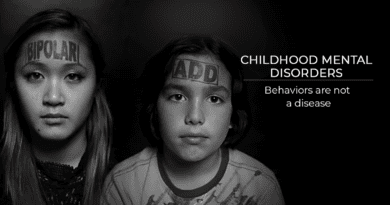Understanding Personality Disorders
Deeply rooted, rigid thought, emotion, and behaviour patterns that deviate greatly from social norms are referred to as personality disorders. These patterns typically emerge during adolescence or early adulthood and tend to persist throughout life, often leading to significant distress and difficulties in personal, social, and occupational domains. These disorders are grouped into three clusters based on shared characteristics, reflecting the complexity of the conditions and the diversity in how they manifest.
Underlying Causes of Personality Disorders
- Genetic Influence: Research suggests that hereditary traits play a substantial role. For example, those who have a family history of borderline personality disorder or other personality disorders may be more likely to have these problems themselves.
- Environmental Factors: Childhood adversity, including neglect, emotional abuse, or exposure to unstable family dynamics, significantly contributes to the development of personality disorders. These early life experiences shape emotional responses and interpersonal functioning.
- Psychological Contributors: Individual temperament, coping styles, and developmental experiences all play a role. A child’s ability to process emotions and stress can evolve into maladaptive behavioural patterns later in life.
Psychological Theories and Personality Disorders
From a psychodynamic perspective, unresolved inner conflicts and early developmental disruptions are key to understanding personality disorders. For example, individuals exposed to emotional neglect in early childhood may develop ineffective coping mechanisms that contribute to the formation of dysfunctional personality traits later in life.
Classifications and Types of Personality Disorders
The Diagnostic and Statistical Manual of Mental Disorders (DSM-5) categorises personality disorders into three separate clusters, each grouped according to common behavioural and emotional traits:
- Cluster A (Odd or Eccentric Behaviours)
- Paranoid Personality Disorder: characterised by erratic mood swings, impulsivity, unstable relationships, and a changing sense of self.
- Schizoid Personality Disorder: Defined by a persistent disconnection from social interactions and a restricted range of emotional expression, often leading to a preference for solitude.
- Schizotypal Personality Disorder: Involves discomfort in social settings, unusual thinking patterns, and eccentric behaviour.
- Cluster B (Dramatic, Emotional, or Erratic Behaviours)
- Antisocial Personality Disorder: Individuals display a disregard for societal rules and the rights of others, often showing deceitful and impulsive behaviour.
- Borderline Personality Disorder: Characterised by impulsivity, erratic mood swings, unstable relationships, and a changing sense of self.
- Histrionic Personality Disorder: Marked by an overwhelming need for attention and validation, often expressed through dramatic and emotionally charged behaviour.
- Narcissistic Personality Disorder: Inflated self-importance, a continual desire for praise, and a lack of empathy for other people are characteristics.
Cluster C (Anxious or Fearful Behaviours)
- Avoidant Personality Disorder: Individuals may avoid social interaction due to feelings of inadequacy and hypersensitivity to rejection.
- Obsessive-Compulsive Personality Disorder (OCPD): Not to be confused with OCD, this disorder is defined by a preoccupation with order, control, and perfectionism.
Recognising Symptoms of Personality Disorders
Although symptoms vary by type, several common features may indicate the presence of a personality disorder:
- Persistent feelings of emptiness or dissatisfaction
- Difficulty forming and sustaining close relationships
- Frequent emotional outbursts or mood instability
- Reckless or impulsive behaviours
- Negative self-perception
- Mistrust or paranoia in social settings
- Overreaction to criticism
- Sudden or intense mood swings
How Personality Disorders Affect Lives
Personality disorders have wide-ranging consequences that affect many aspects of life:
- Relationships: Many individuals with personality disorders struggle to build and maintain healthy connections due to emotional volatility, fear of abandonment, or manipulative tendencies.
- Workplace Challenges: Inflexibility, impulsivity, or poor interpersonal skills can disrupt professional performance.
- Mental Health Risks: People with personality disorders are more susceptible to co-occurring issues such as anxiety, depression, or substance abuse.
- Physical Health: Neglecting health or engaging in self-destructive behaviour can contribute to serious physical problems.
Effective Treatment Options
Managing personality disorders often requires long-term treatment, primarily through psychotherapy and, when needed, medication:
Psychotherapy :
- Dialectical Behaviour Therapy (DBT): Highly effective for borderline personality disorder, DBT focuses on emotional regulation, distress tolerance, and interpersonal effectiveness.
- Cognitive Behavioural Therapy (CBT): Helps individuals identify harmful thought patterns and develop healthier ways of thinking and behaving.
- Schema Therapy: Combines cognitive and psychodynamic approaches to uncover and reshape deep-rooted beliefs and maladaptive patterns.
- Psychodynamic Therapy: Seeks to uncover unresolved internal conflicts stemming from past experiences to foster long-term behavioural change.
Medications: While there are no specific drugs designed to treat personality disorders directly, antidepressants, antianxiety medications, or mood stabilisers may be prescribed to alleviate related symptoms such as depression or irritability.
Psychowellness Center, Janakpuri: Expert Mental Health Care
One of Delhi’s top mental health wellness centres, Psychowellness Center, is situated in Janakpuri and provides a variety of psychiatric services. The facility is dedicated to providing top-notch, scientifically supported therapies that are customised to meet the specific requirements of every patient. With a multidisciplinary team of licensed clinical psychologists, psychotherapists, and wellness experts, the centre supports clients dealing with anxiety, depression, stress, relationship issues, trauma, childhood concerns, and more.
Their therapeutic approach integrates various scientifically validated methods, including Cognitive Behaviour Therapy (CBT), mindfulness-based therapy, and holistic wellness practices. Whether you’re seeking individual therapy, couples counselling, family therapy, or child and adolescent care, Psychowellness Centre ensures a client-centric environment where confidentiality, empathy, and trust are prioritised. The Janakpuri branch is equipped with modern facilities to create a safe, supportive space that encourages healing and personal growth.
Conclusion
Personality disorders are complex and long-lasting mental health issues that need to be treated with compassion and a nuanced understanding. Therapeutic interventions, combined with support from platforms like the Mental Health Wellness Clinic in Delhi, such as the Psychowellness Center, offer individuals a path toward healing and improved quality of life. If you or someone you know may be experiencing difficulties with a personality disorder, contacting a qualified mental health professional is an essential first step in your rehabilitation.
References
- American Psychiatric Association. (2013). Diagnostic and statistical manual of mental disorders (5th ed.). Arlington, VA: American Psychiatric Publishing.
- Mayo Clinic. (2023). Personality disorders. Retrieved from https://www.mayoclinic.org/diseases-conditions/personality-disorders
- Paris, J. (2018). Personality disorders: A practical guide to diagnosis and management (3rd ed.). American Psychiatric Association Publishing.




